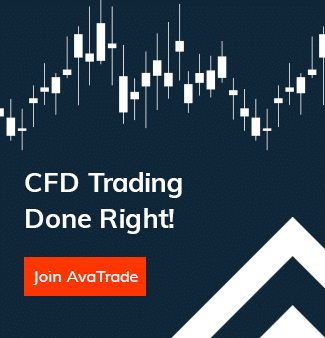Bayer Stock
| MT5/MT4 Symbol:_BAYER |
| Instrument:BAYER |
| Country:GERMANY |
| Currency:EUR |
| Exchange:Frankfurt Stock Exchange |
| Trading Hours (GMT):08:00-16:29 |
Trade Bayer Stock
As a German chemical and pharmaceutical giant, Bayer AG was founded on August 1st, 1863 by businessman Friedrich Bayer and master dyer Johann Weskott. The company is headquartered in Leverkusen Germany, where its illuminated Bayer cross logo remains a landmark icon of the city. Bayer started out selling chemical dyes and enjoyed fast growth as the nascent textile industry exploded. Shortly after, the company introduced Aspirin, a medication used to treat pain, fever, or inflammation. This product became so popular around the world that it marked Bayer’s entry into the global space.
Bayer Stock Trading Information
- MT4 Symbol: _BAYER
- Trading Times: Monday – Friday 08:00 – 16:29 London Time GMT
- Country: Germany
- Currency: EUR
- Exchange: Frankfurt Stock Exchange
- Leverage: Up to
- Minimum Trade Size: 10
Trade Bayer stock with Friedberg Direct and enjoy a wide range of trading tools and platforms. Start Now!
In 1898, Bayer trademarked the drug heroin (now illegal) and marketed it as a cough suppressant. The company held the trademark until World War I, a period during which Bayer experienced widespread challenges. From 1914 to 1918, Bayer’s assets in the US, Canada and several other countries were confiscated, forcing the company to merge with several other German chemical companies to survive. The merged company was known as IG Farben, and it was not until after World War II that the companies split, and Bayer regained its identity again. Bayer operates in the following business areas: Pharmaceuticals, Consumer Health, Crop Science and Animal Health. Responsible for about 30% of Bayer’s gross revenues, Pharmaceuticals remains the company’s most profitable segment, and it focuses on research, development and marketing of prescription products as well as speciality therapeutics.
Bayer held its IPO on October 2nd, 1953 on the Frankfurt Stock Exchange and is listed on all the major exchanges in Germany (Frankfurt, Berlin, Dusseldorf, Hamburg, Hannover, Stuttgart and Munich) as well as in Spain (Madrid and Barcelona). In all these exchanges, it trades under the ticker symbol BAYN. Bayer has also been an active player in the mergers and acquisitions market. In fact, this has been one of the strategies it has actively employed in its global domination quest. Its major buys include AgraQuest, Merck-Consumer Care and Dihon Pharmaceutical. In 2016, Bayer executed its biggest deal – the acquisition of Monsanto, the chemical and agricultural biotechnology giant that operates in two business segments: Seeds and Genomics, and Agricultural Productivity.
It was an all-cash offer that was settled at an aggregate value of $62 billion. The deal positioned Bayer as the primary feeder of a world with a population of about 10 billion people. In addition, the resulting synergies have seen Bayer gain more responsibility in line with its mission of ‘Science for a better life’. Bayer offers a variety of products, including ethical pharmaceuticals and other health care products, agricultural products and polymers.
Bayer Stock History
Bayer stock was offered at 109 marks each when the company was listed in 1953. At that time, the Deutsche Mark was the standard currency in Germany before being replaced by the euro (EUR) in 1999. Bayer has only had one stock split in its history: a 4-for-1 split on September 20th, 2017. As of December 2018, Bayer stock was trading at circa €60 per share, with a market capitalisation of circa €55 billion. Bayer has always been on the watch list of value investors and has been a consistent performer. After a dull performance in the late 1990s, the stock bottomed out at circa €10 in March 2003 and started a multi-year rally that topped out at circa €144 in April 2015.
The stock then started retracing its bullish rally, but the Monsanto deal also weighed on the stock as investors were concerned with the debt financing as well as numerous lawsuits that were filed to prevent the successful completion of the deal. With the Monsanto deal sealed, it remains to be seen whether investors will give the stock their vote of confidence in the future. Despite any pressures on the Bayer stock, the company has maintained its generous dividend policy. Bayer has consistently been paying quarterly dividends since 1953 and averaged a dividend yield of 2.7% from 2008 to 2018. In 2017, the annual dividend payout was €2.80 per share.
How to Trade Bayer Stock
As a leader in its industry, Bayer is an inspired pick for many value investors. Still, investors must consider the following factors when trading Bayer stocks:
- Tariffs and Trade Agreements
Bayer has a global market for its products, and changes in tariffs and trade agreements can significantly impact its revenues and margins.
- Legislative or Taxation Policy
With operations as well as production sites all over the world, Bayer is vulnerable to changes in legislative or taxation policies. A major threat is also counterfeit products that countries in emerging or developing economies may fail to address. As a drug maker, Bayer also operates in a stringent regulatory environment with various laws surrounding drug composition, testing and marketing. This can impact heavily on the company’s costs.
- Competitor Performance
Bayer faces a unique set of competitors, with the riskiest of them being generic drug makers. Such competitors are able to offer distributors huge markups and to pile even more pressure on the pricing of Bayer products.
- New Product Rollout
Bayer operates in an industry characterised by high research and innovation. Launching a new product is a significant event in this industry, and subsequent regulatory approval can have a positive impact on the Bayer stock price. On the other hand, if a competitor beats Bayer to the release of a new, innovative product, investors may punish the Bayer stock.
- Lawsuits and Public Protests
Bayer operates a diversified global portfolio, which exposes it to numerous legal risks, such as patent disputes, anti-trust laws, corruption and product liability, as well as unforeseen risks, such as anti-GMO protests and environmental concerns. Such risks cannot easily be predicted and may not be covered by their insurers’ compensation plan. A simple ruling or spontaneous public protest could have a huge impact on the company’s stock price.
- Periodical Earnings Reports
Bayer’s fiscal year runs from January to December, and the company releases quarterly earnings reports so investors can assess the performance of its business. Earnings reports also inform shareholders on the amount of dividend (or lack thereof) to be paid out by the company.
Because Bayer operates in a dynamic and fast-paced industry, it is important to assess these factors for their short to medium term impact, as opposed to their long-term impact. Stock price moves are momentum based and assessing the short to medium term impact of the above factors can help investors pick out high probability trade opportunities.
Disclaimer: This is a general analysis and not to be viewed or construed as actual trading advice or a recommendation of any kind and just an example of how a particular instrument could, potentially, be traded.
Why Trade Bayer stock with Friedberg Direct
- Regulation – Friedberg Direct, a division of the Friedberg Mercantile Group Ltd, is a member of the Investment Industry Regulatory Organization of Canada (IIROC) and a member of the Canadian Investor Protection Fund (CIPF).
- Uncompromised Security: The funds of Friedberg Direct clients are held in a segregated account. The company also protects its clients and ensures a trader’s account will never go below zero, with the help of negative balance protection.*
- Leveraged Trading – Trade Bayer stock with a leverage and enjoy potentially higher profits with minimal capital outlay.
- Competitive Spreads – Friedberg Direct offers competitive spreads that enable you to trade Bayer alongside other global stocks with minimal costs. This ensures that profit margins are maximised.
- The Friedberg Direct trading platforms suit both short and long-term trading styles. This means investors can profit from short-term price induced movements, such as earnings reports and new product rollouts, or potential long-term moves that can be inspired by factors such as new patents. Traders can access a variety of platforms, including the highly popular MT4 trading platform and the exclusive Vanilla Options trading app – AvaOptions.
- Free comprehensive financial trading education as well as access to daily expert market analysis and trading tips. Friedberg Direct also offers videos and articles. In addition, you can join weekly webinars and access eBooks.
- Professional technical support.
Trade Bayer stock with Friedberg Direct and enjoy a wide range of trading tools and platforms. Start Now!
Disclaimer: Please note these are stock CFDs (Contracts for Difference)
When you enter into a CFD trade you don’t buy the actual stock itself but instead agree on a contract with the broker to settle the difference in value between the entry and exit price of the Stock based on the price the stock is trading at on the Exchange it is listed. That means when you trade Stocks CFDs with Friedberg Direct you get a flexibility that stock market rules often make very difficult or even impossible for some.







